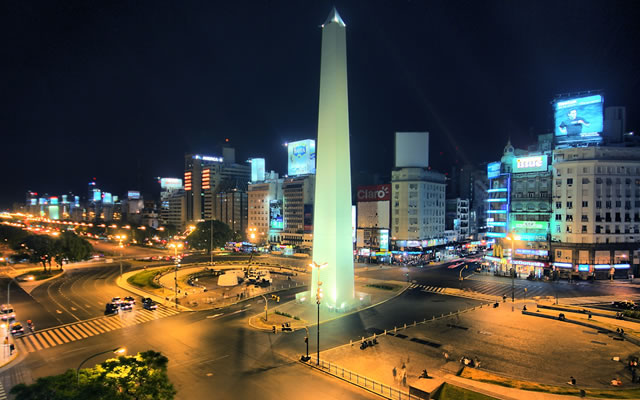It is only natural for you to have a few burning questions before traveling to a new place… and even more natural if you are planning to study abroad. No need to worry, because whether you are coming to complete a photography course, graduate program, or a culinary arts degree, Mente has you covered!
Below is a list of the 10 most frequently asked questions that we receive before our program participants arrive in Buenos Aires.
1. What should I pack from home that I won’t be able to get in Argentina?
Some items, like electronics and clothes, are more expensive in Argentina and we’d recommend bringing them from home rather than buying here. You may also consider bringing the following:
- Contact lens solution
- Toiletries that you cannot live without (makeup, deodorant, shampoo, soap)
- Feminine products (if you are picky regarding brands)
- Umbrella
- Chargers and accessories of any electronics you plan on bringing
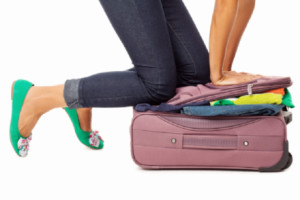
- Favorite snacks
- A fancy outfit for a special occasion
- Comfortable shoes
- Water bottle and filter
- Backpack for traveling
- Sunscreen
- Vitamin supplements
- Prescription medication and original prescriptions (original package, clearly labeled with full name, Doctor’s name, brand name, exact dosage. Carry it in your carry-on luggage, not in checked luggage)
2. Can I drink water from the tap?
 Yes, the water in Buenos Aires is potable. Health standards are very high. You may find that you need a few days to adjust to the taste. You can also get a filter for the tap or buy bottled water from the Patagonia Mountains! If you travel outside of Buenos Aires city, where tap water is often less processed, ask locals whether it’s okay to drink or look it up beforehand.
Yes, the water in Buenos Aires is potable. Health standards are very high. You may find that you need a few days to adjust to the taste. You can also get a filter for the tap or buy bottled water from the Patagonia Mountains! If you travel outside of Buenos Aires city, where tap water is often less processed, ask locals whether it’s okay to drink or look it up beforehand.
3. I know basic Spanish, but I am scared of using vos because I only learned how to use tú.
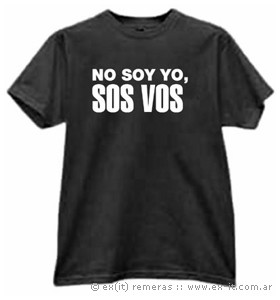 Don’t confuse vosotros (you plural) with vos (you singular). Vosotros is only used in Spain.
Don’t confuse vosotros (you plural) with vos (you singular). Vosotros is only used in Spain.
Vos is primarily used in Argentina, Paraguay, and Uruguay. Conjugating vos is, in my opinion, much easier and more comfortable than conjugating the tú form. For example, querés instead of quieres, and podés instead of puedes.
Try to learn the local dialectal variety. If you make an effort, Argentines will appreciate it; however, using tú will not inhibit you from communicating with the locals. Remember that basically all foreign movies, TV shows and books are translated into what is considered “neutral Spanish” or tú, so Argentines are accustomed to hearing it. Buenos Aires is a city filled with many immigrants from Latin America who speak different forms of Spanish. Another particularity of Argentine Spanish is the pronunciation of “ll” and “y”, which both make a “sh” sound.
4. What should I tip waitors and taxi drivers?
 Like everywhere else in the world, it is always up to you. Depending on your experience, it is nice to tip wait staff between 10-15%. For taxi drivers, you don’t need to tip but can round up to the nearest peso. Taxis are metered, meaning the amount that appears on the meter at the end of your trip is the amount you pay.
Like everywhere else in the world, it is always up to you. Depending on your experience, it is nice to tip wait staff between 10-15%. For taxi drivers, you don’t need to tip but can round up to the nearest peso. Taxis are metered, meaning the amount that appears on the meter at the end of your trip is the amount you pay.
5. How do I do my laundry?
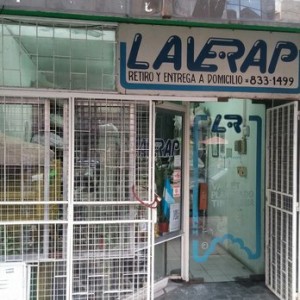 Few apartments in Buenos Aires have washing machines. When you need to do laundry, put your clothes in a bag and take them to your nearest “lavandería.” There is one on nearly every block in the city. They are not self-service, but rather a complete service – you drop off your clothes and come back during the evening or the following day to pick them up (washed, dried, and folded). If you have particular washing instructions about certain clothing like undergarments or other delicate fabrics, we recommend washing them by hand at home. The service is inexpensive (approximately $2-3 USD for one load).
Few apartments in Buenos Aires have washing machines. When you need to do laundry, put your clothes in a bag and take them to your nearest “lavandería.” There is one on nearly every block in the city. They are not self-service, but rather a complete service – you drop off your clothes and come back during the evening or the following day to pick them up (washed, dried, and folded). If you have particular washing instructions about certain clothing like undergarments or other delicate fabrics, we recommend washing them by hand at home. The service is inexpensive (approximately $2-3 USD for one load).
6. Where can I print?
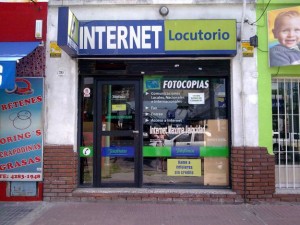 You can print in black and white or color at most internet cafés called “locutorios.” Bring a flash drive or email the file to yourself, then ask for a computer and print! They will charge you a minimal fee for using the computer and each page that you print. Expect to pay more for printing in color. In case you need to print longer documents such as books or course readers, save them as PDFs and go to a “imprenta,” or laser printer store (faster and neater) which is also inexpensive. There are several Staples in Buenos Aires, too!
You can print in black and white or color at most internet cafés called “locutorios.” Bring a flash drive or email the file to yourself, then ask for a computer and print! They will charge you a minimal fee for using the computer and each page that you print. Expect to pay more for printing in color. In case you need to print longer documents such as books or course readers, save them as PDFs and go to a “imprenta,” or laser printer store (faster and neater) which is also inexpensive. There are several Staples in Buenos Aires, too!
7. How can I watch a Boca Juniors/River Plate Game?
 Watching a top-tier soccer game in Buenos Aires can be very expensive (even more so if you book through a tour company). Generally, tickets are sold to fans that have memberships that guarantee them cheaper tickets. However, there are many leagues and more teams than just Boca and River – going to see a second or third tier league is much more affordable. If you absolutely want to see a River or Boca game, make sure to look up dates, ticket date releases and how to get one. Avoid buying from websites such as MercadoLibre or Craigslist as you could be purchasing a fake ticket!
Watching a top-tier soccer game in Buenos Aires can be very expensive (even more so if you book through a tour company). Generally, tickets are sold to fans that have memberships that guarantee them cheaper tickets. However, there are many leagues and more teams than just Boca and River – going to see a second or third tier league is much more affordable. If you absolutely want to see a River or Boca game, make sure to look up dates, ticket date releases and how to get one. Avoid buying from websites such as MercadoLibre or Craigslist as you could be purchasing a fake ticket!
8. Can I mail items to and from Buenos Aires?
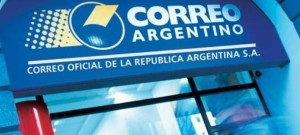 Yes, technically you can. BUT… be prepared to pay a lot to send documents or boxes, and for a significant amount of bureaucratic messiness. You can trust the normal post (Correo Argentino) or mail services such as FedEx or DHL to deliver packages. When trying to send or receive a package that crosses international borders, it can be quite tricky, so try not to have anything sent to you from abroad! Customs regulations make it very complicated to get packages and you might receive a note saying you need to go in person to pick up your package from Ezeiza airport or from the customs office in Retiro Station. They charge you for every day that they store your package and often for the cost of the item you’re receiving as well. It’s a big mess, so don’t mail anything that is not documents or letters and you’ll save yourself some serious headaches… and time… and money.
Yes, technically you can. BUT… be prepared to pay a lot to send documents or boxes, and for a significant amount of bureaucratic messiness. You can trust the normal post (Correo Argentino) or mail services such as FedEx or DHL to deliver packages. When trying to send or receive a package that crosses international borders, it can be quite tricky, so try not to have anything sent to you from abroad! Customs regulations make it very complicated to get packages and you might receive a note saying you need to go in person to pick up your package from Ezeiza airport or from the customs office in Retiro Station. They charge you for every day that they store your package and often for the cost of the item you’re receiving as well. It’s a big mess, so don’t mail anything that is not documents or letters and you’ll save yourself some serious headaches… and time… and money.
9. Do I need the yellow fever vaccine to travel to Iguazú?
 Always take advice from your doctor seriously; they are the ones who know best. You don’t have to get the vaccine to go to Iguazú, but it is highly recommended. Unless there is an outbreak in the area, there will not be an issue. You can also get the vaccine for free in “vacunatorios” around the city if you bring your passport. Unless you are going to Northern Bolivia, the Amazon, or someplace where yellow fever is more common, you won’t need it, but it’s always better to be safe than sorry!
Always take advice from your doctor seriously; they are the ones who know best. You don’t have to get the vaccine to go to Iguazú, but it is highly recommended. Unless there is an outbreak in the area, there will not be an issue. You can also get the vaccine for free in “vacunatorios” around the city if you bring your passport. Unless you are going to Northern Bolivia, the Amazon, or someplace where yellow fever is more common, you won’t need it, but it’s always better to be safe than sorry!
10. How much is an acceptable rate for a taxi ride to Ezeiza (EZE) airport?
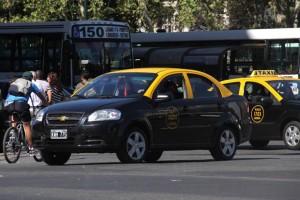 Ezeiza is located outside of the city, so it’ll take about 30-40 minutes to get there by car. Anywhere between $40-50 USD is a normal rate for a taxi. To save some money, it might be worthwhile to use a shuttle service such as Manuel Tienda León (around $15 USD) or the public city bus Line 8 (normal bus fare of $20 ARS, or 50 cents USD. Although it takes about 2 hours to reach EZE – you’ll need a public transportation card (sube) to ride. Mente Argentina participants have private car rides both to and from the airport included in their study abroad program.
Ezeiza is located outside of the city, so it’ll take about 30-40 minutes to get there by car. Anywhere between $40-50 USD is a normal rate for a taxi. To save some money, it might be worthwhile to use a shuttle service such as Manuel Tienda León (around $15 USD) or the public city bus Line 8 (normal bus fare of $20 ARS, or 50 cents USD. Although it takes about 2 hours to reach EZE – you’ll need a public transportation card (sube) to ride. Mente Argentina participants have private car rides both to and from the airport included in their study abroad program.
OTHER TIPS:
- There are two kinds of outlets here – some have 2 round holes, and others have 2 diagonal holes with 1 vertical hole below it. Mente apartments and homestays are equipped with adapters for Argentine outlets, but it’s always good to have your own. You can purchase one in your home country or here – they’re sold at supermarkets, electronics stores, flea markets and sometimes even in the street.
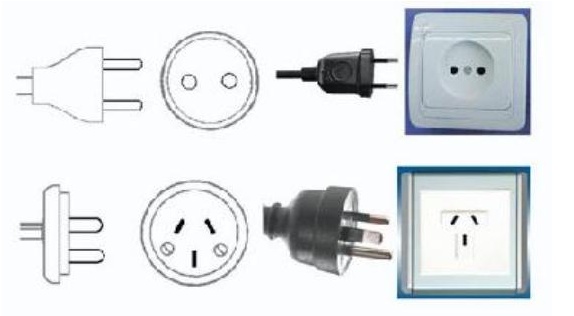
If you have other questions that weren’t covered here, send us an email at info@menteargentina.com!

